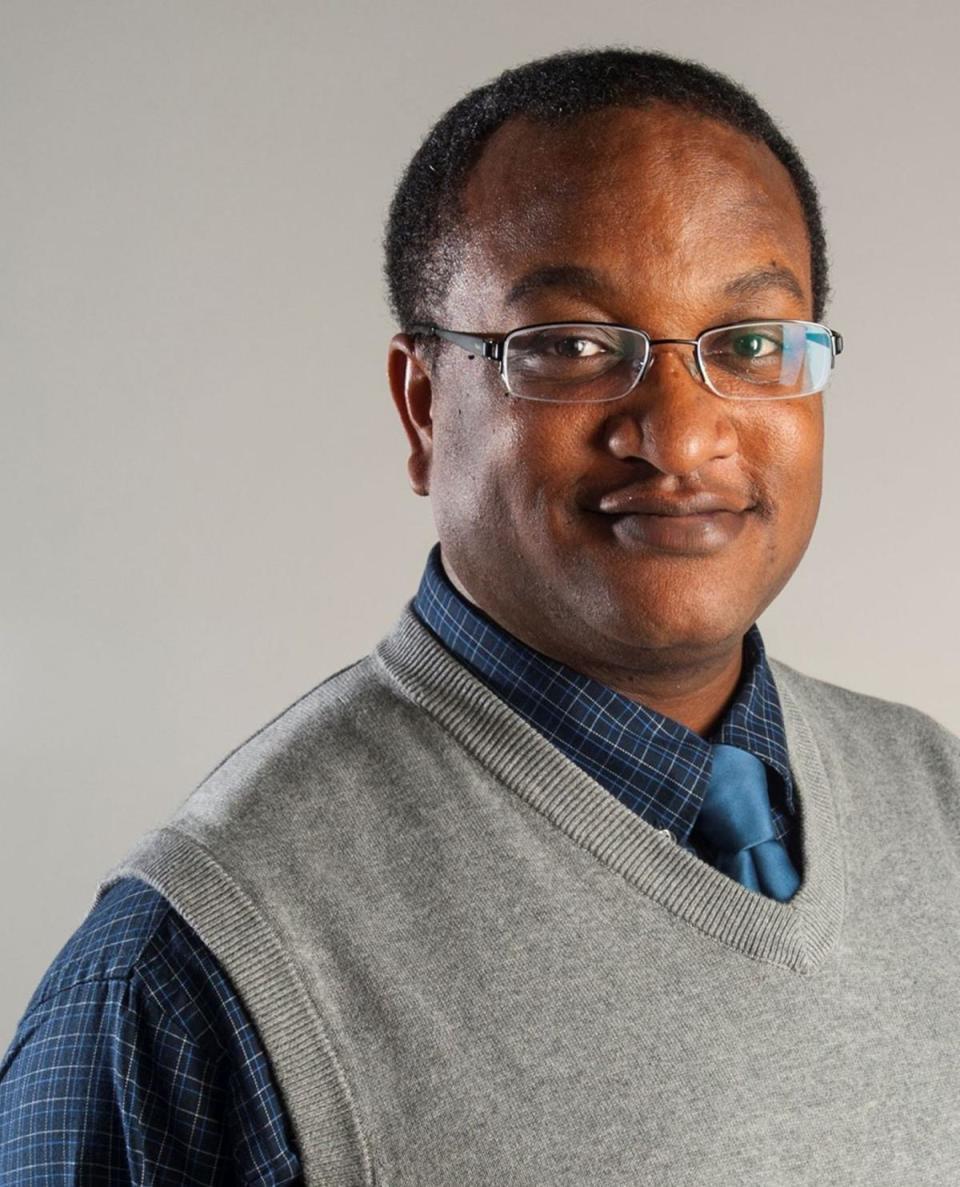What are Fayetteville’s Black Spaces? Our series will take a look
Safe spaces may seem like a relatively new idea.
But Black folks have been using such spaces since our forebears arrived on these shores in 1619, although we don’t call them safe spaces. We call them the Black church. The Black barber shop. Black-owned businesses or ones that cater to a Black clientele. Black-owned restaurants and night spots.
For Black History Month, The Fayetteville Observer will take a look at these Black spaces in the Fayetteville community — from historical to modern-day. You will read about restaurants ranging from the iconic Vick’s Drive-In soul food spot to contemporary restaurants that attract a large share of Black customers.
More: Pitts: Residents remember Fayetteville's Green Book stops
You will hear about faith spaces that also serve as community spaces, like Lewis Chapel and Mt. Sinai Missionary Baptist churches.
We will travel to barber shops then and now including Mack’s Barber Shop on Gillespie Street, which once was a stop on the Green Book — made famous by a 2018 movie and a guide published for Black motorists, so they could find safe spaces in unfamiliar towns during the dangerous era of Jim Crow segregation.
‘All hair is good hair’
Our series intends to examine the role Black spaces have played in the life of our city — and how that role has changed, including whether these spaces serve the same crucial function as they once did.

These predominantly Black environments have not just been about physical safety but emotional health.
I thought about this the other day when I interviewed Dr. Teresa McAllister, a Fayetteville church pastor who believes in healing talk.
More: Pitts: Small Fayetteville ministry with big heart and big impact believes in ‘talk that heals’
In Onslow County, schools integrated when she was a child. Although it opened up great opportunities for Black students, the transition was difficult for McAllister, who had gone to an all-Black elementary school.
“You really had to go another whole level to make sure you felt valued,” she said. “We came from elementary — that type school, where the teachers knew us, they knew our mom and dad. They loved us and we loved them. Back in the day, we cut up, they would correct you on the spot.”
At the new school, she says she encountered something new from the white teachers at the time: Indifference. Her self-esteem suffered. She had been an A student.
“The first year of changing over, I almost flunked,” said McAllister, senior pastor at Rapha Family Ministries Inc.
She said she sees the same level of hurt with some young Black women and girls, today.
“It would hurt me when a mother or a young lady felt bad about herself or talked bad about herself,” she said. “‘My hair is not pretty, or my color — I’m too dark.' All that type of stuff. That was taking away from a lot of people’s value when we was coming up.”
In her space at Rapha and in the community, McAllister shows people their worth because she learned to appreciate her own.
“Quit saying we have bad hair,” she says. “All hair is good hair. It's what God gave you. It’s to go with your makeup, your anatomy. It’s the hair you’re supposed to have.”
Islands in a sea of systemic racism
Black, segregated schools suffered from an enormous gap in resources, and Black school students typically received discarded books and materials from white schools. My mom who grew up in segregated Georgia talked about how she and her siblings and fellow students walked to school, and white children passed them on the school bus. The white kids yelled the n-word out the window. My mom and them threw rocks.
Despite that, the all-Black schools were also islands of escape from systemic racism, particularly in the South where Jim Crow segregation, enforced by murder and terrorism, held sway for generations.
Black spaces have traditionally been about acceptance, the spaces where Black Americans could, even in the bleakest days of segregation, be the leaders — preachers, teachers, principals, shop owners, doctors and on and on.
A space to be heard
Most importantly, Black spaces have been places where Black folks can be heard.
The idea of being heard is important to any person, and we are no different. If you have ever heard people “chop it up” i.e. talk back and forth in a barber shop, just about everyone in the shop has their time to speak if they want — whether it is politics, sports, the opposite sex — or whatever.
The larger society is not always so hospitable. We have heard too many stories and seen too many videos of Black people being challenged or even arrested for being in a space where they had every right to be.
The incidents make clear systemic racism still has impacts, negatively affecting everything from Black women’s maternal healthcare to the ability of Blacks and other minorities to receive fair home loan rates. Here in Fayetteville, a Black motorist is five times more likely to be subject to a consent search by the Police Department, a disparity referred to locally as “driving while Black.”
In our Black spaces series, we hope to look at where the modern spaces fit into the larger narrative of what we can still safely call the Black struggle.
Myron B. Pitts can be reached at mpitts@fayobserver.com or 910-486-3559.
This article originally appeared on The Fayetteville Observer: Fayetteville’s Black Spaces to feature in Black History Month series

